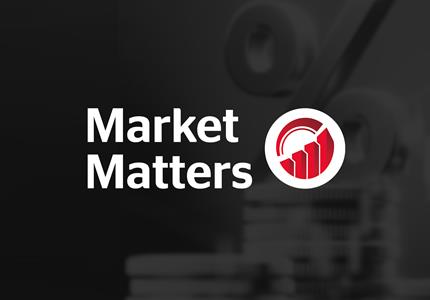

Using technology to get ahead
This article was written for Business Brief in the Guernsey Press.
In the technology space, the buzz word(s) of the moment is Artificial Intelligence (AI), which for many will conjure up images of robots taking over the world – either The Terminator or C-3PO, take your pick.
When it comes to writing about technology, the obvious route would be to discuss the progress companies such as Microsoft and Google are making within the world of AI. But what is perhaps more interesting is the impact it is having on non-tech sectors.
As thematic investors, the team at Ravenscroft is focused on identifying evolving global trends, and AI appears to be infiltrating our core themes, such as global consumption, and being used as a tool to drive many of our preferred businesses forward.
Within the world of consumer goods, it is marketing and advertising that is seeing the most benefit of AI – utilising data to understand buyers’ habits and tastes to provide either a more personal experience or indeed selling the right products to the right customers.
AI, in short, is the simulation of human intelligence using computer systems and data sets. Aside from maintaining and obtaining data, the initial step is pattern recognition; this is the ability of machines to identify patterns in data, and then use those patterns to make decisions or predictions using computer algorithms - a vital component of modern artificial intelligence systems. The extension of this is a computer system that can ‘learn’ from the results, improve over time and can do anything a human brain can do.
A number of our favourite brands have taken the steps to build out their capabilities in this regard. L’Oréal, as an example, has built a system in house, TrendSpotter, which uses AI to analyse videos, images and comments on social media and online beauty publications to spot trends before the competition to each create new products or market existing products at the right time, on the right platforms, to the right audience. It is the ideal tool for this due to the ability to scan and process significant amounts of data, and is trained and intelligent enough to spot keywords. TrendSpotter’s algorithm collects over 25 million bits of data – from text to hashtags – on an annual basis – far more than what is possible with just the human eye. This helps L’Oréal obtain the intel to create in-demand products for consumers across the world.
Diageo, on the other hand, has been utilising AI to enhance the consumer buying experience. The leading alcoholic beverage company recently acquired Vivanda after using some of its technology for many years. Vivanda has a trademarked “FlavorPrint” system, which through asking a series of questions (anything from whether you like rosemary to how often you need bananas) maps your preferences to provide you with a ‘unique flavour profile’ and guide you to which whisky you may prefer. Conveniently, you can then simply click to purchase. They have plans to expand this across their other product categories to enhance the overall customer shopping experience.
Nike have gone a step further and, as part of their company agenda on individualisation, have launched the Nike Fit app, which assists buyers in purchasing their perfect shoe size online using various AI elements such as computer vision, recommendation algorithms and some augmented reality (perhaps that’s for another issue!). The app, with the help of your smartphone camera, scans your foot and recommends your perfect trainer. This not only helps customers have a successful online shop but the data obtained in relation to foot sizes helps Nike be more accurate when designing and manufacturing their products.


This is just a snapshot of how AI can change our lives. It isn’t just impacting how we are marketed to and how we shop – the same technologies have the power to personalise healthcare and help bring new medical discovery to market more efficiently or track and analyse weather/temperature pattens to help us focus our efforts to fight climate change (or manage it). In the coming years we suspect AI will drive significant efficiencies across our portfolio of companies, helping them become more productive and enhancing the returns our shareholders will experience as a result.



